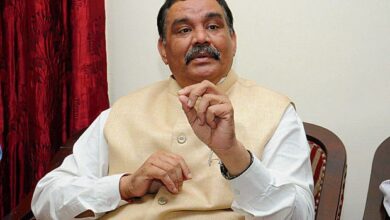“We have to acknowledge India’s global aspirations.”
Modi and Macron have opposing political ideologies, but they have cultivated a bond that seems to be the catalyst for their robust collaboration.

Their generations and schools of thought are very different. They do, however, share the understanding that forming alliances is crucial in the competitive, power-driven global environment of today. India acted in conjunction with France when it assumed leadership of the Solar Alliance. The Paris Climate Accord was designed by France. Macron is aware, however, that Europe’s decarbonization of its economy is insufficient; China, the US, and India must also demonstrate their commitment to this struggle. India is located in an area that is economically thriving. There is a belief in France that there is a way to turn this business relationship into one where both parties benefit.
Regarding India’s place in geopolitics, what are your thoughts?
India has made it quite apparent that it wishes to influence international law and that its interests will be somewhat more fully represented in it. India has played a significant role in non-aligned movements ever since gaining its independence. But since it wants to forge its own path and collaborate with many viewpoints, it is now pursuing a new paradigm in some way. India is aware that not all of its partners will be amicable, but that in the modern world, influence is necessary. India is polygamous; it seeks to maintain relationships with the US, the EU, China, and Russia, as well as with its neighbors to the west, the Middle East, and the north. It aspires to act as a link between the North and the South. India’s aspirations on the global stage must be acknowledged.
Has this gained traction since 2014, when Modi became prime minister?
The state of world relations has shifted, becoming more antagonistic. As a result, people who can handle challenging conditions get a higher price. Modi is doing just that—managing difficult situations while upholding India’s long-standing position as a major player in international affairs. I had a job at the WTO. Furthermore, I could tell that India has always desired to have a say in discussions. If I compare the figures from thirty years ago, India’s share in foreign commerce was rather modest. However, it sought to influence discussions politically. Compared to its historical contribution of 2%–3% of global commerce, India now accounts for a larger portion of it.
What are your thoughts on the difficulties that Donald Trump has put out for NATO?
We are familiar with the Trump administration’s approach, having lived through one. Taking control of our destiny rather than leaving it in the hands of American voters is the lesson that we, as Europeans, must learn. Three key areas need significant investment: increasing the competitiveness of the European economy and expanding its access to the single markets in Europe; bolstering security and defense by assuming more responsibility and fortifying the European pillar in NATO; and demonstrating concern for our democracy.
Rahul Gandhi and you met in Paris last year.
While in Paris, we extended an invitation to him to give a speech at the university. He discussed the goals of the Bharat Jodo Yatra and its purpose with kids in a conversation. He is battling for his political independence. You may win or lose at any given moment. His dedication to advancing both his and the Congress’s agendas is evident to me. The election of 2024 is expected to be quite significant. I refuse to question the will of the voters in India.







